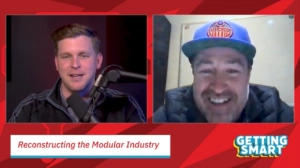A Positive Workplace Culture Attracts and Retains Employees
Manufacturing now offers the highly-technical jobs that will attract today’s tech-oriented employees, with over 70% of Americans viewing manufacturing as the most important industry for a strong economy and national defense. Often viewed as labor intense, dirty, dangerous, and lower paying than white collar jobs, job seekers mostly shy away from employment within manufacturing. However, America’s manufacturing sector needs them. Baby‐boomer retirements are expected to open up 2.7 million manufacturing jobs by 2025 along with the 700,000 new positions that will need to be filled as the sector continues to expand. For manufacturing operations to survive and grow, insight into how to attract and retain employees is crucial.
What Employees are Saying
According to a recent 2018 Deloitte Millennial Survey, there is a difference between what employees believe companies should do versus what the company actually does. These actions, or a lack thereof, greatly impact their tenure in a position. Also, today’s workplace overwhelmingly believes that a business’ success should be measured in terms of more than financial performance. While realizing that profits are a priority and list financial rewards at the top of their job requirements, they also counter that corporations should set a broader balance of objectives. This includes making a positive impact on society and the environment, creating innovative ideas, products and services, job creation and career development that improves people’s lives with an emphasis on inclusion and diversity in the workplace.
Additionally, employees consider flexible working arrangements as an incentive for their overall loyalty, valuing the trust that employers demonstrate in severing the ties of strict hours and locations. Further, they maintain that an increase in flexibility over the past years has provided a more stimulating work environment. Also, some employees are less focused on their own personal income/reward or short-term financial goals, and more interested in the growth and development of their professional and leadership skills. Strong training programs developed to cultivate their talent and knowledge demonstrates an investment in their growth and future aspirations. Finally, employees seek a sense of purpose, an engagement, and connection to what they are doing. Engaged workforces, Gallup reports, outperform their peers by 147% in earnings per share. However, a staggering 87% of employees worldwide are not engaged
The Happy Factory
To attract and retain talent, and therefore, achieve improved productivity and increased financial performance, manufacturers and senior management teams must align with them in terms of purpose, culture and professional development.
Actively invest in workers through training. Offering continual learning opportunities not only provides employees with the knowledge to do the job better and advance further but shows concern for their individual growth and development.
Keep in pace with flexibility trends. Flexibility engenders trust while providing employees with a balance between work and home. Also, many studies show that employees are willing to make much less if they are able to work flexible hours. In fact, recruitment organizations recognize that flexible hours are a competitive advantage in attracting quality employees today.
Communicate your corporate mission and establish a culture of openness and honesty. This can promote candid interoffice communication and goal-oriented teamwork to drive company objectives.
The Genesis Culture
The idea that work is grueling and shouldn’t be fun doesn’t compute with the newer workforce generations. While changes can be difficult to implement within the work environment, businesses must adapt in order to attract these employees. At Genesis Products, we want all our interactions with clients, suppliers, and employees to be positive experiences. Innate to our company’s core, we foster a work environment that promotes enjoyment and positivity from within with business goals that align to these fundamentals.
Read more at genesisproductsinc.com









